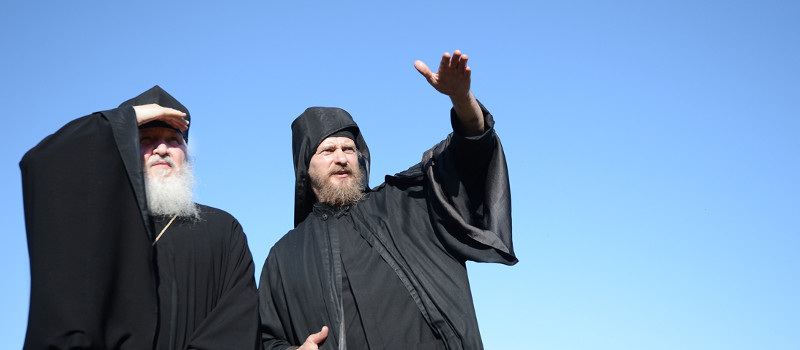Orthodox-Protestant Theological Dialogue is ‘D-E-D’ Dead
The dialogue with protestant churches has hit a dead end, but the Russian Orthodox Church hopes for cooperation with them in the humanitarian sphere, the patriarch of Moscow and all-Rus declared in an interview with Bulgarian news media.
Patriarch of Moscow and all-Rus Kirill will visit Bulgaria on 2 to 4 March and participate in the celebration of the 140th anniversary of the liberation of the country from the Ottoman yoke. Within the framework of the visit the patriarch will participate in commemorative events, honor the memory of troops that fell in the liberation of Bulgaria in the Russo-Turkish War of 1877-1878, and conduct a prayer service in the memorial church of the Nativity of Christ in Shipka.
“Protestant churches have always gone along the channels of secular thought and have been susceptible to the influence of secular authority. And today the liberal tendencies in their theology are the result of the pressures of secular conceptions, human rights, and liberty, which presuppose both change in the attitude toward the sexes and support for same-sex unions. Therefore, unfortunately, on the theological level we now have a halt. I do not see real movement forward in the near future, and the Orthodox are not to blame for this,” the primate of the Russian Orthodox Church said.
He recalled that conversation on these topics has been conducted continuously, but Russia sees in Western Christians a lack of freedom and capacity
“to say ‘no’ to the powers of this world.”
“Unfortunately, the capitulation of fundamental Christian ideas before liberal philosophical approaches to human personality is obvious,” the patriarch emphasized.
At the same time, the primate noted that a dialogue of the Russian church, Catholic communities, and protestant organizations in providing aid to Christians in the Near East is bringing tangible benefit. Similarly, he said, although the prospect of achieving agreements in the area of theology is lost as of now, “there remain other areas.” In particular, religions have always played an important role in inter-cultural dialogue.
“And so today such a dialogue through religious organizations and churches would be able also to facilitate the establishment of great mutual understanding among people. Therefore I see that there remains space for joint actions in humanitarian and cultural spheres,” the first hierarch concluded.
